Home>diy>Building & Construction>What Is A Union In Construction
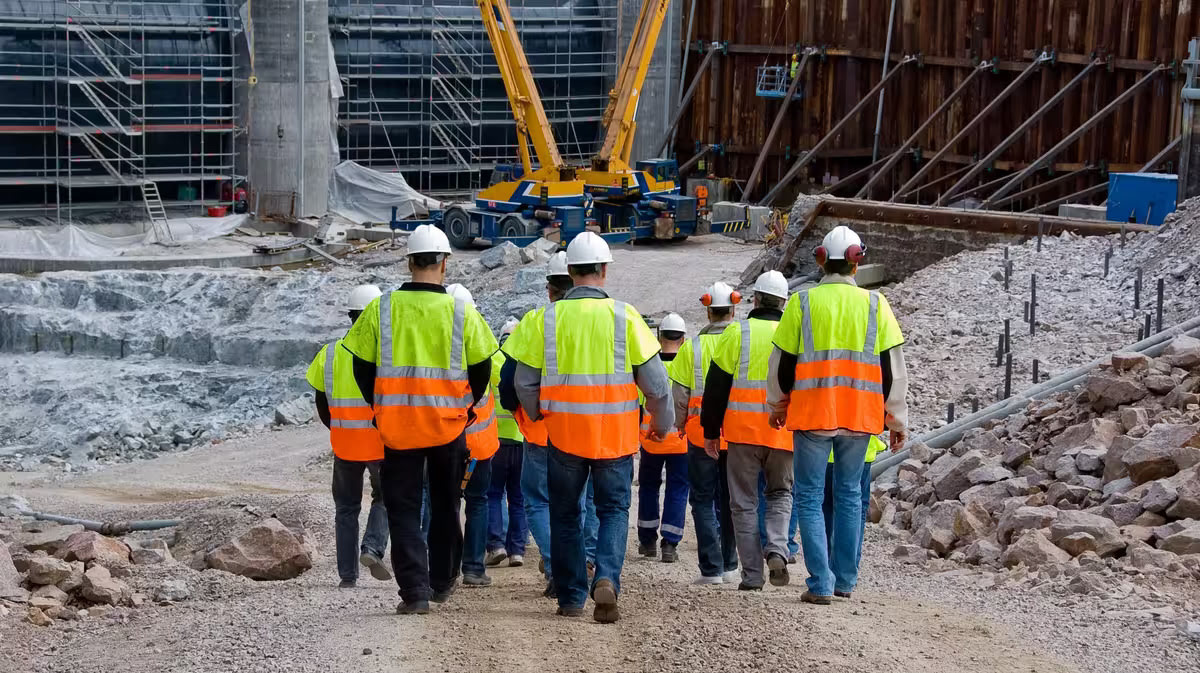

Building & Construction
What Is A Union In Construction
Modified: January 6, 2024
Learn all about unions in building construction and how they play a vital role in protecting workers' rights and ensuring fair and safe workplaces.
(Many of the links in this article redirect to a specific reviewed product. Your purchase of these products through affiliate links helps to generate commission for Storables.com, at no extra cost. Learn more)
Introduction
Welcome to the world of construction, where buildings rise from the ground and cities transform. Construction is a complex and challenging industry that requires skilled workers, meticulous planning, and adherence to strict safety standards. In this dynamic field, the concept of a union plays a crucial role.
Unions in construction serve as intermediaries between workers and employers, protecting the rights and interests of the workers while ensuring fair labor practices. They provide a collective voice for construction workers, advocating for better wages, benefits, and working conditions. Understanding the role and significance of unions in construction is essential for workers, employers, and anyone interested in the industry.
In this article, we delve into the concept of a union in construction and explore its history, benefits, challenges, and how to join one. Whether you are a construction professional or simply curious about the industry, let’s embark on this journey to understand the world of unions in construction.
Key Takeaways:
- Unions in construction act as powerful advocates for workers, ensuring fair wages, job security, and improved working conditions through collective bargaining and industry-specific representation.
- Joining a union in construction provides workers with a collective voice, access to training, and benefits, fostering a strong and vibrant workforce while navigating challenges and criticisms within the industry.
Read more: What Is A Construction Union
Definition of a Union in Construction
A union in construction refers to an organized group or association formed by construction workers to collectively bargain with employers for better working conditions, wages, benefits, and job security. Unions act as the voice of the workers, representing their interests and advocating for their rights in negotiations with employers. They serve as a bridge between individual workers and management, fostering a sense of unity and solidarity within the construction industry.
Unions in construction typically operate under a set of established rules and regulations, which are laid out in a collective bargaining agreement (CBA) between the union and employers. This agreement outlines the terms and conditions of employment, including wages, hours of work, overtime pay, health and safety provisions, and grievance procedures.
The primary goal of a union in construction is to ensure that workers are treated fairly and equitably. By negotiating collectively, unions can achieve greater bargaining power and influence over working conditions, leading to improved wages, benefits, and job security for their members.
Unions in construction also play a vital role in cultivating a skilled and well-trained workforce. They often provide training programs and apprenticeship opportunities to members, ensuring that workers have the necessary skills and knowledge to perform their jobs safely and efficiently. These training programs contribute to the overall quality and professionalism of the construction industry.
It is important to note that unions in construction are typically industry-specific, focusing primarily on representing workers involved in construction trades such as carpentry, electrical work, plumbing, and masonry. Each trade may have its own union or be represented by a larger construction union, depending on regional or national affiliations.
Overall, a union in construction acts as a powerful advocate for the rights and interests of construction workers, providing them with a collective voice and the power to negotiate for better working conditions and wages. It promotes stability, fairness, and high-quality standards in the construction industry, benefiting both workers and employers alike.
History of Unions in Construction
The history of unions in the construction industry dates back to the early days of modern construction. As the industry grew during the Industrial Revolution in the 18th and 19th centuries, so did the need for organized labor. Construction workers faced harsh working conditions, long hours, low wages, and little to no job security.
During this time, the formation of trade unions became a means for workers to come together, leverage their collective power, and demand better treatment from employers. Workers organized strikes and protests to advocate for improved wages, shorter workdays, and safer working conditions. These early unions laid the foundation for the labor movement in construction.
One of the key milestones in the history of unions in construction was the establishment of the Building Trades Department (BTD) in the late 19th century. This umbrella organization brought together various construction trade unions, allowing them to coordinate their efforts and collectively negotiate with employers. The BTD played a crucial role in shaping the labor movement in construction and setting industry-wide standards.
Throughout the 20th century, unions in construction grew in strength and influence. They fought for important reforms, including standardized wages, the introduction of benefits like healthcare and retirement plans, and improved safety regulations. The formation of international unions, such as the International Brotherhood of Teamsters and the United Brotherhood of Carpenters, expanded the reach and impact of the labor movement in construction.
Union activism in construction reached its peak during the post-World War II era, as construction boomed and labor shortages created favorable conditions for workers to negotiate better terms with employers. This period witnessed the construction industry becoming one of the most heavily unionized sectors in the United States.
However, the late 20th century brought significant challenges for unions in construction. Economic shifts, globalization, and changes in labor laws led to a decline in union membership. Non-union construction companies emerged, offering lower labor costs, and subsequently, competition among unions and non-union contractors intensified.
Today, unions in construction continue to play a crucial role, albeit with a smaller membership base. They continue to fight for fair wages, safe working conditions, and the protection of worker rights. Unions are also adapting to the changing landscape by expanding their focus to include workforce development, training programs, and initiatives to address the industry’s skilled labor shortage.
The history of unions in construction is one of resilience, determination, and the pursuit of fair treatment for workers. While they have faced challenges, unions remain a fundamental part of the construction industry, working towards creating a better future for construction workers and ensuring the continued growth and success of the industry.
Benefits of Union Membership in Construction
Union membership in the construction industry offers numerous advantages and benefits for workers. Joining a union provides workers with a collective voice, job security, better wages, access to benefits, and opportunities for career advancement. Let’s explore some of the key benefits of union membership in construction.
- Collective Bargaining Power: One of the primary benefits of being a union member is the ability to negotiate as a collective. Unions have the power to bargain with employers on behalf of their members, ensuring fair wages, improved working conditions, and better benefits.
- Job Security: Unions strive to protect the job security of their members. Through the collective bargaining process, unions negotiate for provisions such as layoff policies, seniority-based promotions, and protection against unfair dismissal. Unionized workers generally have greater job security than non-union workers.
- Fair Wages and Benefits: Unions work to secure fair compensation for their members. They negotiate competitive wages, overtime pay, and benefits packages that can include health insurance, retirement plans, and vacation time. Union members typically receive higher wages and better benefits compared to non-union workers in the same industry.
- Improved Working Conditions: Unions advocate for safe and healthy working conditions. They negotiate for safety regulations, protective equipment, and protocols to ensure the well-being of construction workers. Unionized workplaces often have better safety records and higher adherence to safety standards.
- Training and Career Development: Unions in construction often provide training programs and apprenticeship opportunities to their members. These programs help workers gain new skills, improve their expertise, and advance in their careers. Union apprenticeships are highly regarded and can lead to well-paying skilled positions in the industry.
- Grievance Procedures: In the event of disputes or conflicts with employers, unions offer a structured grievance process. Union members have access to representation and advocacy in resolving workplace issues and ensuring that their rights are protected. This provides workers with a level of support and recourse that is not typically available to non-union workers.
- Support and Advocacy: Union membership provides a sense of community and solidarity among construction workers. Unions offer support, guidance, and representation for individual workers. They advocate for workers’ rights both at the workplace and in the larger political and legislative arenas, fighting for policies that benefit construction workers and the industry as a whole.
These benefits highlight the significance of union membership in the construction industry. Working collectively through unions empowers construction workers, improves their working conditions, and ensures fair treatment and compensation. Union membership not only provides immediate advantages but also contributes to the long-term professional growth and security of construction workers.
A union in construction is an organization that represents and advocates for the rights of construction workers. Joining a union can provide access to better wages, benefits, and job security.
Union Benefits and Protections for Construction Workers
Union membership in the construction industry provides workers with a range of benefits and protections that enhance their working lives and ensure their rights are safeguarded. These benefits and protections are the result of collective bargaining agreements and the advocacy efforts of unions. Let’s explore some of the key union benefits and protections for construction workers.
- Wage and Benefits Negotiation: Unions negotiate wages and benefits on behalf of their members, striving to secure fair compensation for their work. By bargaining collectively, unions are better positioned to achieve higher wages, overtime rates, and access to comprehensive benefits such as healthcare, retirement plans, and paid time off. These negotiated agreements can significantly improve the financial well-being of construction workers and their families.
- Health and Safety Standards: Unions in construction prioritize the safety and well-being of their members. They work to establish and enforce health and safety standards on construction sites, ensuring that workers are protected from hazardous conditions and have access to appropriate safety equipment and training. Unions actively advocate for safe working environments and help reduce the risk of accidents and injuries.
- Job Security and Seniority: Many union agreements include provisions that protect job security and promote a fair system for promotions and layoffs. Seniority-based systems ensure that workers with more experience are given priority when it comes to job opportunities, promotions, and job assignments. This provides stability and a sense of security for construction workers, reducing concerns about being unfairly laid off or overlooked for career advancement.
- Grievance Resolution: Unions offer a structured grievance process to address workplace issues and conflicts. Construction workers who are union members have access to representation and assistance with filing grievances, ensuring that their concerns are heard and addressed. This avenue for recourse is crucial in resolving disputes and disputes fairly and efficiently.
- Training and Professional Development: Unions in construction often provide training programs and apprenticeships to their members. These programs aim to enhance the skills and knowledge of workers, ensuring that they are up to date with the latest industry practices and technologies. Union-sponsored training can lead to better job opportunities, increased earning potential, and long-term career growth for construction workers.
- Legal Support: Union members in the construction industry have access to legal support and representation if they face issues related to their employment. This includes assistance with workplace discrimination, wrongful termination, or labor law violations. The backing of a union can significantly strengthen the legal position of construction workers and ensure that their rights are protected.
- Collective Voice and Advocacy: Unions provide a collective voice for construction workers, advocating for their rights and interests in the industry. Unions actively engage in political lobbying and legislative efforts to promote legislation and policies that benefit the construction workforce. This collective advocacy gives construction workers increased influence and the power to shape industry standards and regulations.
These union benefits and protections contribute to a more secure, stable, and fair working environment for construction workers. By uniting under the banner of a union, they can collectively advocate for their rights, improve their working conditions, and achieve better compensation. Union membership in the construction industry offers a range of advantages that empower workers and foster a strong and vibrant construction workforce.
Read more: How To Get Into A Construction Union
Challenges and Criticisms of Unions in Construction
While unions in the construction industry provide many benefits and protections for workers, they are not without their challenges and criticisms. Let’s explore some of the common challenges and criticisms faced by unions in construction.
- Costs and Dues: One of the main criticisms of unions is the cost associated with union membership. Union dues are typically charged to members to cover the costs of union representation, negotiations, and other services. Some individuals argue that these dues can be a financial burden for construction workers, especially those who may not fully utilize or appreciate the benefits provided by the union.
- Competition and Non-Union Contractors: The construction industry is highly competitive, and non-union contractors often offer lower labor costs. This can pose challenges for unions, as contractors may choose non-union workers to reduce expenses. This competition can lead to a decline in union membership and influence, as well as potential job loss for unionized workers.
- Restrictive Work Rules: Critics argue that unions in construction sometimes have restrictive work rules that can impede productivity and efficiency. These rules may include limitations on job assignments, work methods, and flexibility in task allocation. Some argue that these rules can hinder construction projects and increase costs for employers.
- Resistance to Change: Unions have been accused of resisting changes that could potentially improve efficiency and productivity in the industry. Critics argue that unionized construction sites may be slower to adopt new technologies or work practices that could streamline operations and lead to cost savings.
- Union Corruption: While relatively rare, instances of corruption within unions have been a cause for concern. Cases of union officials engaging in embezzlement, bribery, or other illegal activities have tarnished the reputation of unions in the construction industry. These instances undermine public trust and can lead to increased skepticism towards unions.
- Strikes and Work Stoppages: Strikes and work stoppages are powerful tools used by unions to negotiate better terms for workers. However, they can also lead to delays in construction projects, financial loss for employers, and inconvenience for the public. Critics argue that strikes can disrupt the industry and hinder economic growth.
- Lack of Representation for Non-Union Workers: Non-union workers in the construction industry may feel that they lack representation and a collective voice. They may not benefit from the negotiated terms and protections offered to unionized workers, which creates a divide between union and non-union workers in terms of compensation and working conditions.
It is important to note that while there are challenges and criticisms, unions in construction continue to play a significant role in advocating for workers’ rights and improving working conditions. Unions are constantly evolving and working to address these concerns while adapting to industry changes and advancements. Through open dialogue and collaboration, unions can find ways to continue providing valuable support and benefits to construction workers.
How to Join a Union in Construction
If you are a construction worker interested in joining a union, here are some steps to guide you through the process:
- Research and Identify the Right Union: Start by researching and identifying the union that best represents your trade or craft in the construction industry. Look for unions that have a strong presence in your area and advocate for the rights and interests of construction workers in your field.
- Attend Union Information Sessions: Many unions hold information sessions or open houses where you can learn more about the union, its benefits, and how it can support your career in construction. Attend these sessions to gather information and ask questions directly to union representatives.
- Meet Eligibility Requirements: Each union may have specific eligibility requirements for membership. These requirements can include certain skills, experience, or certifications. Make sure you meet the criteria outlined by the union before proceeding with the application process.
- Complete the Application: Obtain an application form from the union and complete it accurately and honestly. Provide any required documentation, such as proof of employment or certifications, as requested by the union. Follow the instructions provided to submit the application.
- Pay Initiation Fees and Dues: Once your application is accepted, you will typically be required to pay an initiation fee to become an official union member. You will also be responsible for paying ongoing membership dues, which are typically a percentage of your wages. Ensure you understand the fee structure and payment schedule associated with union membership.
- Attend Orientation and Training: Many unions conduct orientations or training programs for new members. These sessions provide essential information about the union, its structure, benefits, and your rights and responsibilities as a member. Take advantage of these opportunities to familiarize yourself with the union and connect with fellow members.
- Engage in Union Activities: Actively participate in union activities and events to maximize your membership experience. Attend meetings, join committees, contribute to discussions, and take advantage of training and educational opportunities provided by the union. Engaging in union activities helps you build relationships, stay informed, and have a voice in shaping the union’s direction.
- Utilize Union Services and Benefits: Once you have become a union member, make sure to take full advantage of the services and benefits offered by the union. This may include access to health insurance, retirement plans, training programs, legal assistance, and job placement opportunities. Stay informed about your rights as a union member and actively seek support and guidance when needed.
Joining a union in construction can provide numerous benefits, including better wages, improved working conditions, job security, and access to training and career development opportunities. By following these steps, you can navigate the process of joining a union and become an active member of the construction industry’s labor movement.
Conclusion
Unions in the construction industry play a vital role in protecting the rights and interests of workers, ensuring fair treatment, and advocating for better wages, benefits, and working conditions. From their historical origins to their present-day impact, unions have been instrumental in shaping the construction industry and improving the lives of construction workers.
Joining a union in construction provides workers with a collective voice and the power to negotiate for fair compensation, job security, and access to important benefits such as healthcare and retirement plans. Unions also prioritize safety standards, advocate for improved working conditions, and offer training and career development opportunities to enhance the skills and expertise of members.
While there are challenges and criticisms associated with unions in construction, they continue to evolve and address these concerns. Unions strive to balance the needs of workers with the demands of a competitive industry, adapt to changes in technology and work practices, and maintain a strong advocacy presence for their members.
For construction workers, understanding the process of joining a union is key to accessing the benefits and protections offered. Researching and identifying the right union, meeting eligibility requirements, completing the application process, and actively engaging in union activities are all steps towards becoming a member and taking advantage of the support and resources provided by unions.
The construction industry relies on the dedication and expertise of its workers to bring projects to life. Unions in construction ensure that these workers are valued, protected, and compensated fairly for their contributions to the industry. By maintaining a strong and united workforce, unions contribute to the growth and sustainability of the construction industry as a whole.
Whether you are a construction worker considering union membership or someone interested in the industry, understanding the role and significance of unions in construction is crucial. Unions shape the landscape of the construction industry, promoting fairness, safety, and professionalism, and continue to make a positive impact on the lives of workers and the industry as a whole.
Frequently Asked Questions about What Is A Union In Construction
Was this page helpful?
At Storables.com, we guarantee accurate and reliable information. Our content, validated by Expert Board Contributors, is crafted following stringent Editorial Policies. We're committed to providing you with well-researched, expert-backed insights for all your informational needs.

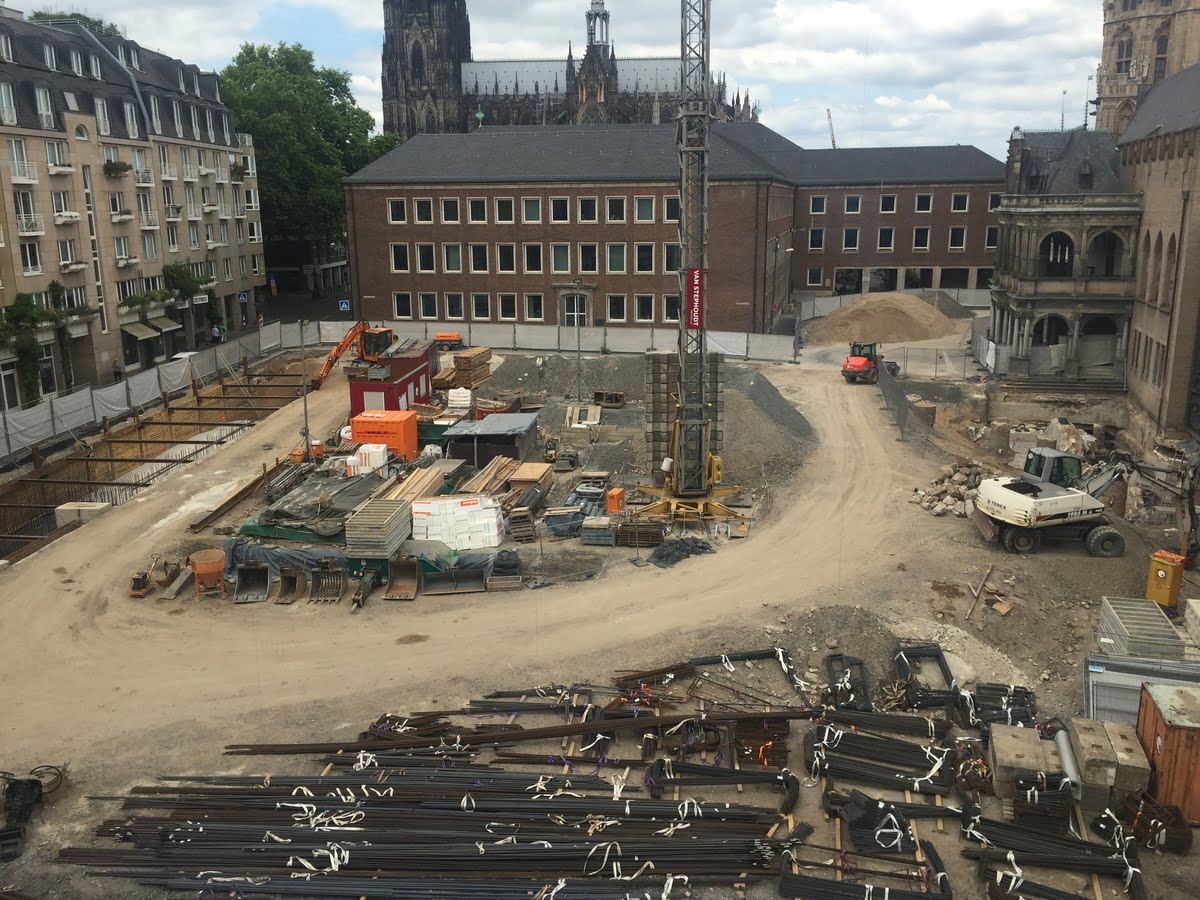

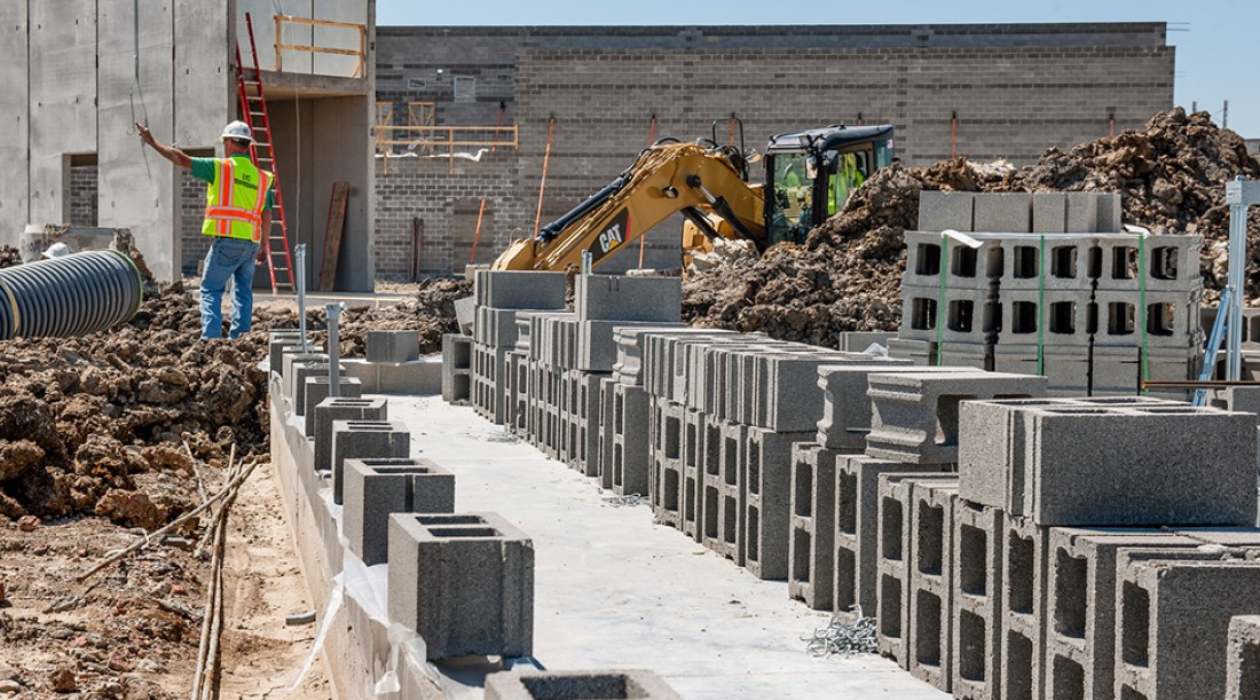
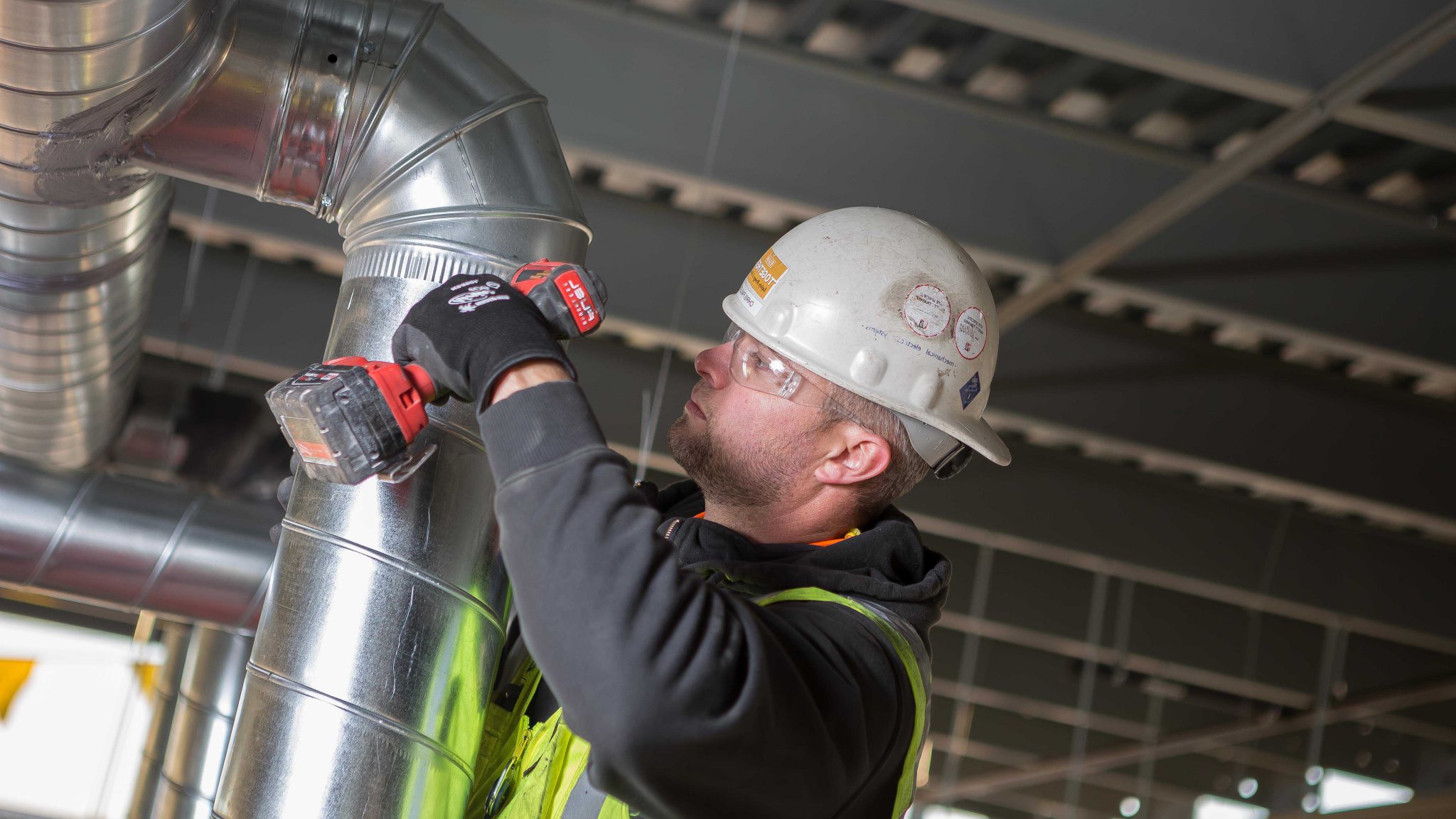

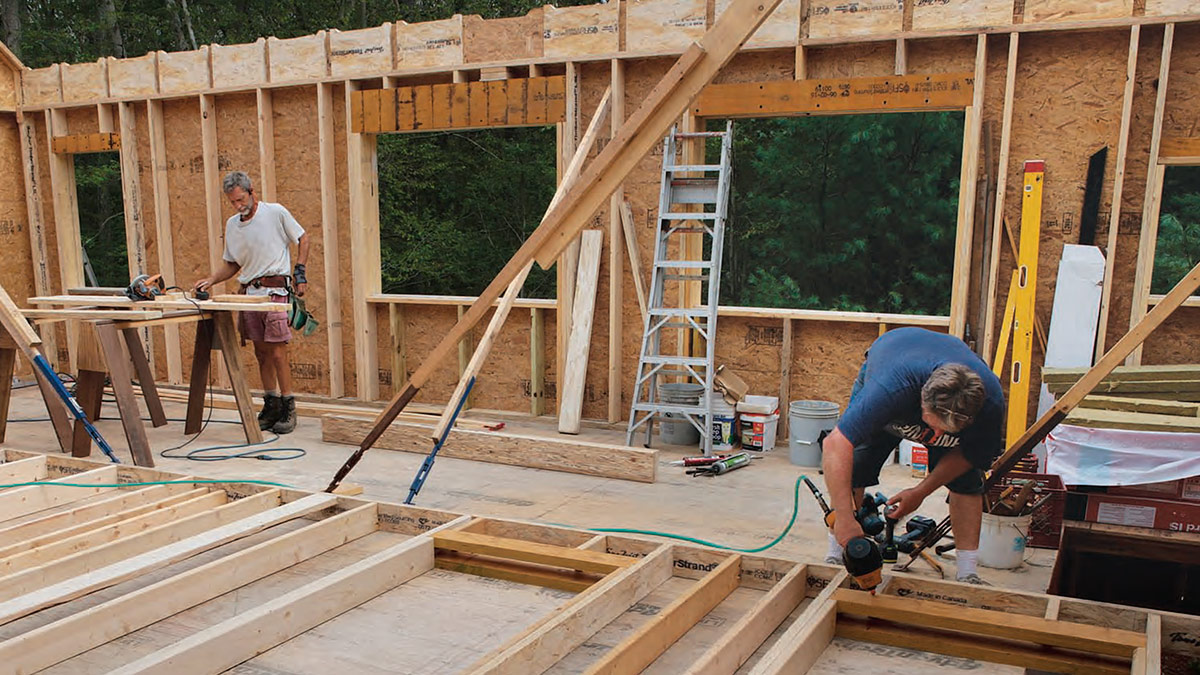



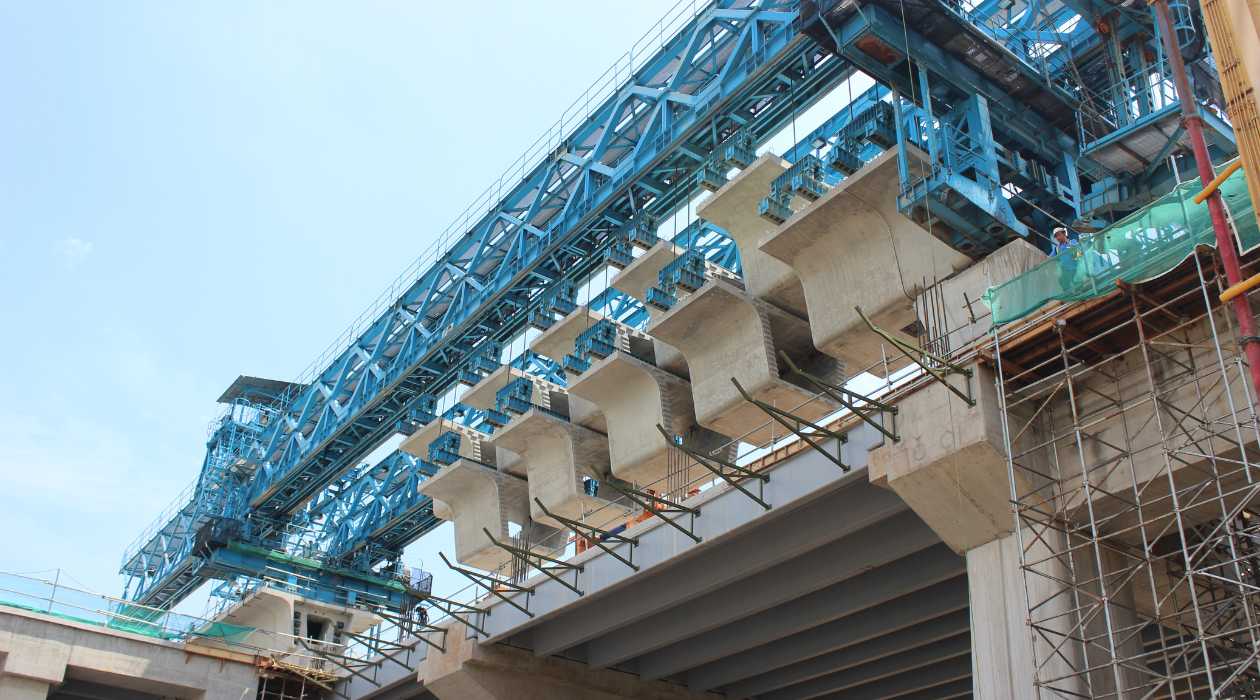
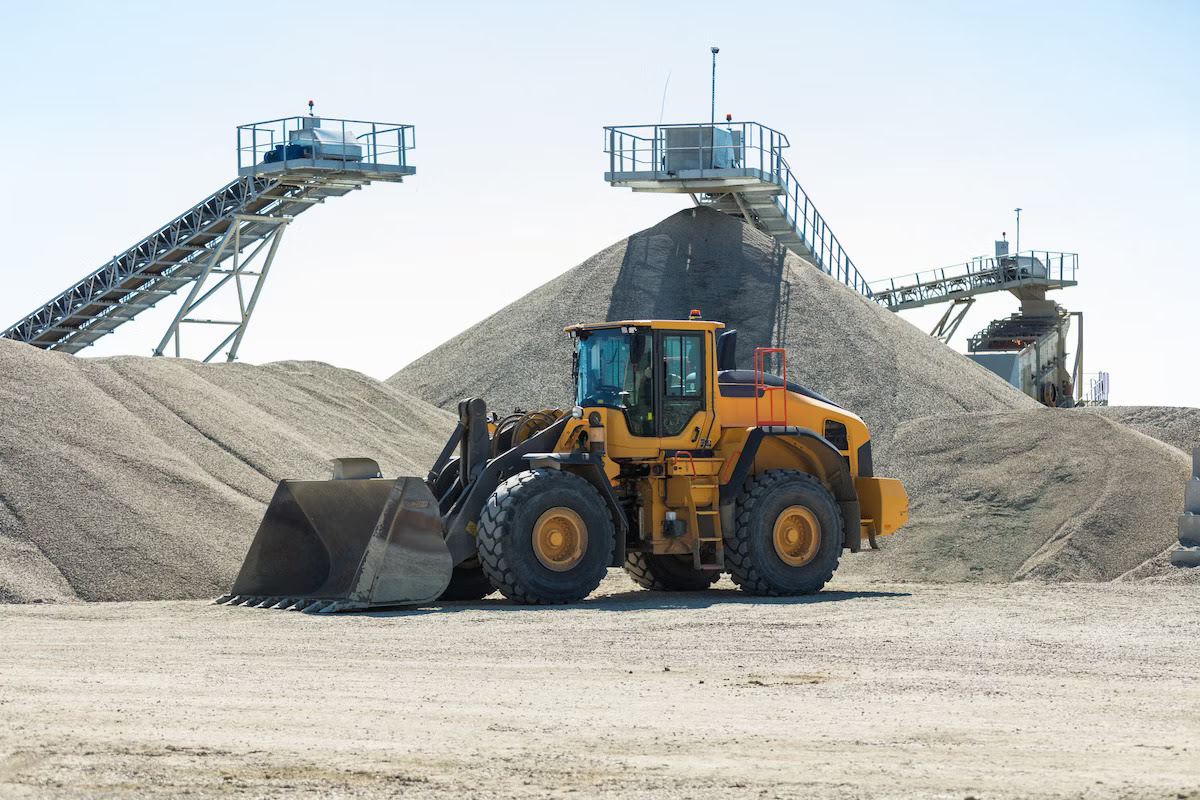
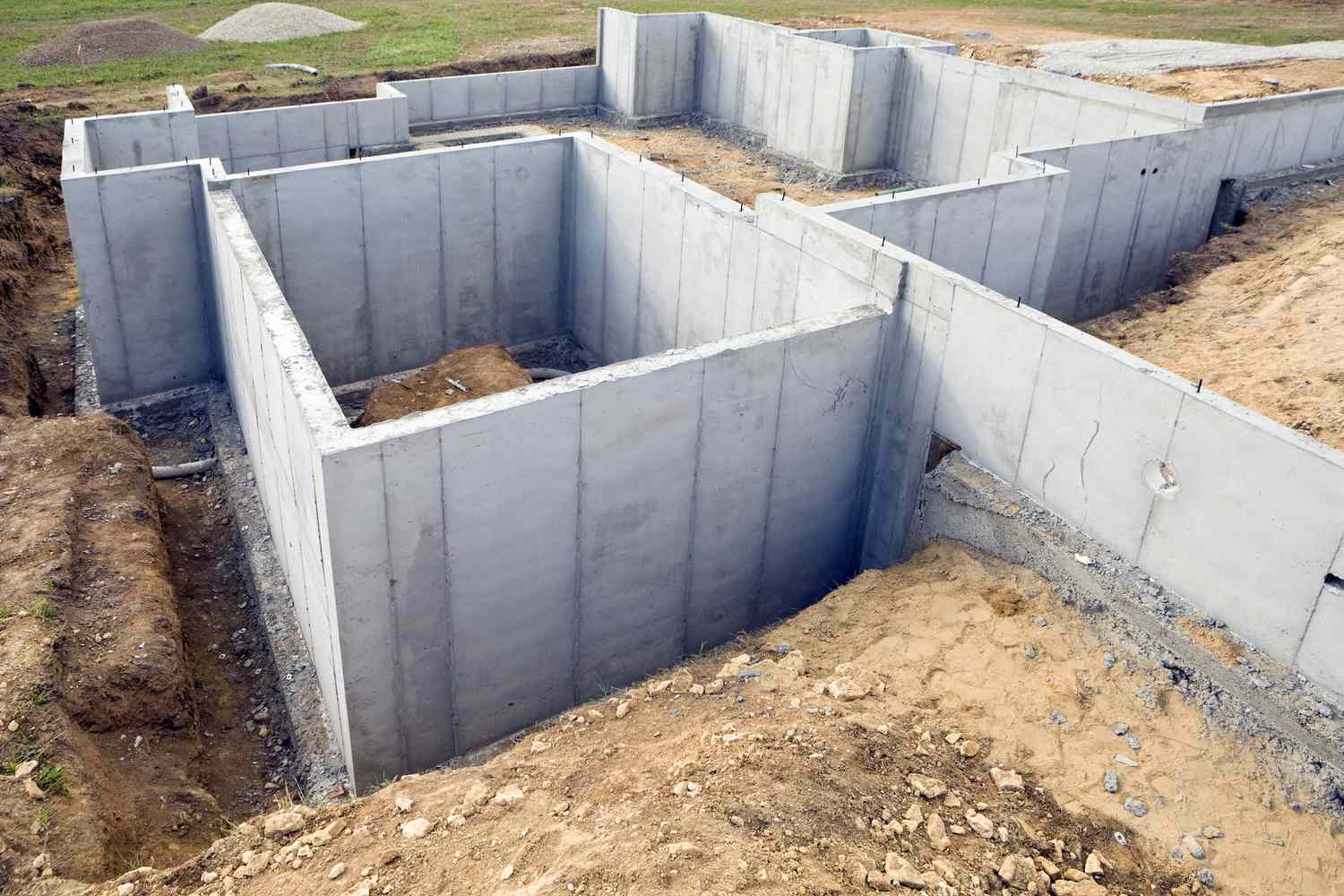


0 thoughts on “What Is A Union In Construction”